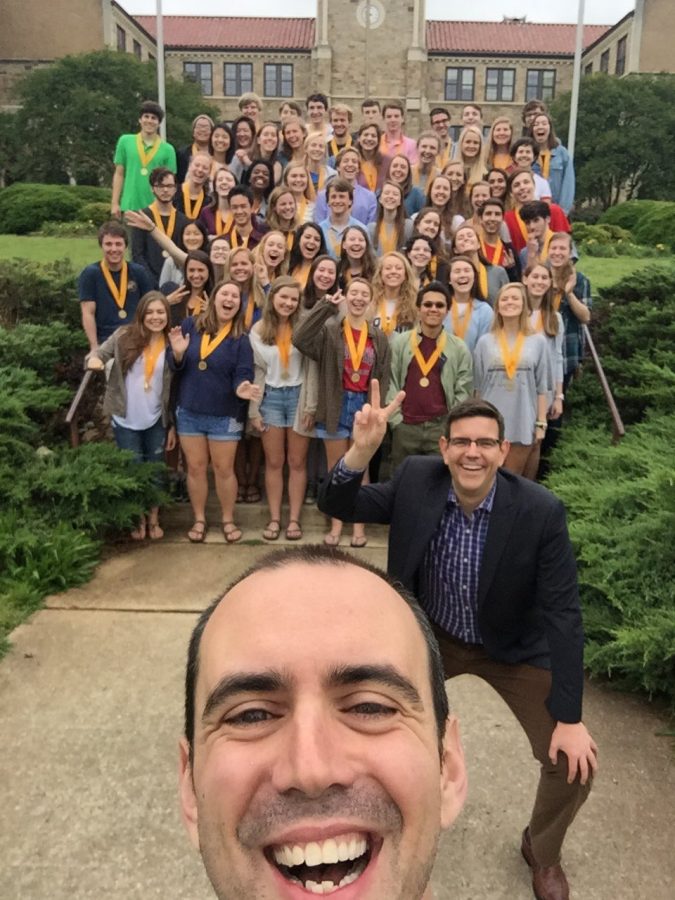Should you choose IB?
Photo via Twitter @BroughtonIB
Mr. Quinn and Dr. Brooks pose with the Broughton IB class of 2016.
The winter months mark an important time in underclassmen choices: class registration begins, application deadlines approach for certain organizations like student government (and newspaper), and Broughton sophomores must make the big decision whether or not to pursue an International Baccalaureate (IB) Diploma in their junior and senior year.
One of the most frequently asked questions by students during this time is the difference between the Advanced Placement (AP) route and the IB route.
In a nutshell, AP and IB differ in purpose and structure. While both types of course offerings are considered accelerated and worth the most points in terms of GPA (five for an A), IB is more holistically oriented around an entire type of education to obtain a diploma while AP functions as a type of class that awards college credit. AP is more universally accepted for college credit around the country, but IB has become increasingly accepted for a large majority of universities, especially those in the top tiers.
The IB program functions as an entire mode of education and thinking, in some respects. Given that it is an international organization, the program itself is globally-minded and emphasizes teaching students to cultivate a world view. It is also structured around IB core requirements, which include the Extended Essay, CAS (Creativity, Activity, Service), and Theory of Knowledge.
Students often ask which route is more difficult in terms of coursework and difficulty. The short answer is both AP and IB are challenging. AP is not a curriculum, it is individual classes, meaning you can take one AP class or eight. IB, on the other hand, is a curriculum that requires testing in at least six subjects, three of which are Higher Level (HL) classes that are two years long. In addition to the multiple class requirement, there is extra responsibility in the IB core requirements of the Extended Essay, a 4000-word independent research paper on the topic of your choice, and CAS, reflection-based logging of activities, ranging from creative endeavors (art, dance, baking, etc.) to physical exercise (hiking, running, yoga, etc.) to service (volunteering). These two components round out a more interwoven experience within the IB that creates its own environment as opposed to the separate classes of AP. But the actual level of coursework depends on the classes you take. Some AP classes may have more work than some IB classes, and vice versa.
“Some of the qualities that make a student a good fit for the IB diploma program at Broughton are curiosity, diligence, independence, perseverance, and openness to new ideas and experiences,” commented Mr. Quinn, one of the IB coordinators and Theory of Knowledge teachers at Broughton.
One of the best things about IB is the community and thinking that it fosters. While it is a challenging route, you are surrounded by other students who are passionate about learning and inspiring to work alongside. IB encourages important discussions about global issues and challenges learners to think outside the box, preparing them for university and beyond as young adults.

